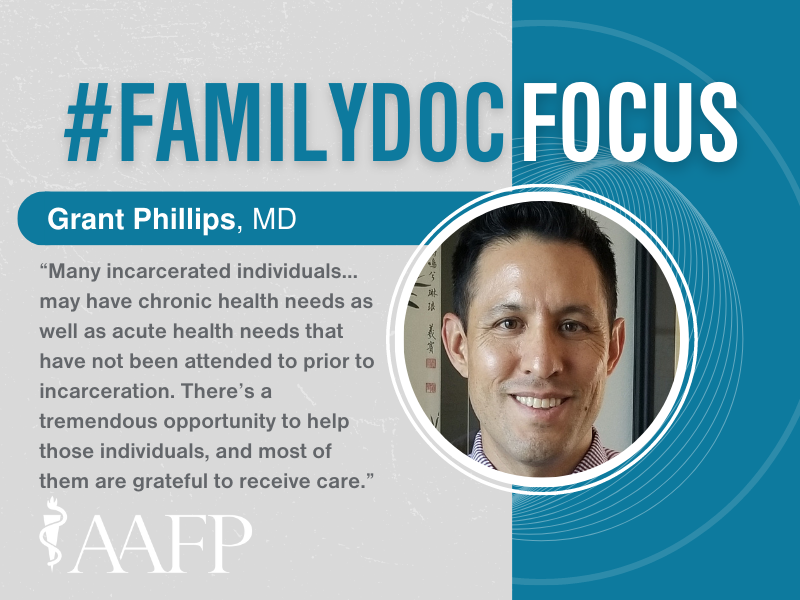
He found his niche in family medicine, however, in a place many others might not look.
“It goes back to a commitment to the underserved,” said Phillips, medical director of the Arizona Department of Corrections, Rehabilitation and Reentry. “Many incarcerated individuals have a lower level of health literacy. They may have chronic health needs as well as acute health needs that have not been attended to prior to incarceration. There’s a tremendous opportunity to help those individuals, and most of them are grateful to receive care.”
Phillips made the difficult decision to leave his traditional family practice in 2011 and became the lead physician at the Estrella Jail, a women-only prison in Phoenix. He spent a decade at Maricopa County Correctional Health Services, working his way up to medical director of one of the nation’s largest jail systems with thousands of incarcerated people in six facilities.
Three years ago he became medical director of the state’s department of corrections, giving him oversight of care for 34,000 people at nine state facilities and seven private prisons.
Phillips said his job provides an opportunity not only to improve the health of the prison population but the entire community.
“We have individuals going back to the community in very high numbers,” he said. “You might think of prison as a place where people go and stay for a long time, which many of them do, but about 15,000 go back to the community every year. There are tremendous opportunities to maintain their health, improve their health and potentially make a big impact on the health of the community.”
Case in point, he said, is hepatitis C. The prevalence of hepatitis C in Arizona is less than 1%. However, the number is closer to 20% in the state’s prison system.
“That provides us with a tremendous opportunity to treat those individuals while they are incarcerated and to send them back into the community without hepatitis C,” he said. “That helps those individuals with their long-term health because they’re much less likely to develop cirrhosis of the liver or liver cancer, and they’re also less likely to transmit hepatitis C to other people.”
The Arizona prison system recently implemented a program that screens individuals for opioid use disorder and alcohol use disorder and offers medication and counseling during incarceration, as well as discharge planning and reentry services.
That latter piece, Phillips said, is equally important so that people have continuity of care as they reenter the community.
The need is staggering. Roughly 80% of people in Arizona jails and prisons have some form of substance use disorder, he said.
Phillips’ role includes developing evidence-based policies, procedures and clinical practice guidelines that are “straightforward so that they can be consistently followed at all of our complexes and facilities,” he said. He also works with vendors who administer health services in prisons and engages with outside stakeholders, including coordinating care services when people leave prison.
Phillips is the AAFP’s representative to the National Commission on Correctional Health Care Board of Representatives. The commission works to improve the quality of health care in jails, prisons and juvenile confinement facilities by establishing standards for health services in correctional facilities, operating an accreditation program for institutions that meet those standards and offering certification for correctional health professionals.
“In that role, I have a seat at the table and represent family physicians working in the correctional health care environment,” he said. “That role is important because as family physicians, we deliver comprehensive health care through all stages of life. I think that approach in the correctional health care environment, from not just an episodic or chronic care approach but also preventive care, oftentimes gets overlooked. This is an important aspect of delivering care, especially to individuals who haven’t gotten a whole lot of preventive care in the community and who may be staying in prison for a very long time.”
This post was originally published on this site be sure to check out more of their content.








